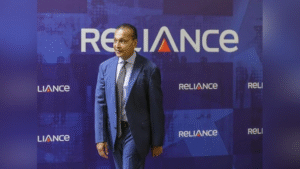Investigative scrutiny may test investor confidence in restructured Reliance entities

Mumbai, July 25, 2025The Enforcement Directorate (ED) has disrupted the fragile recovery of the Anil Ambani-led Reliance ADAG Group (RAG). It launched fresh scrutiny into legacy defaults and corporate restructuring. The investigation focuses on earlier insolvency cases and unpaid debt. It raises concerns over how well the market can separate the group’s new firms from its troubled past. The ED’s action has dampened investor interest in Reliance Power and Reliance Infrastructure. This comes despite recent signs of financial improvement.
The probe targets past defaults linked to Reliance Communications (RCom) and Reliance Home Finance (RHFL). These entities are no longer part of the core group. The ED also raided properties, including a ₹1,200 crore office linked to Reliance Infra. The raid relates to its ₹2,892 crore one-time loan settlement. The action brings renewed focus on the group’s earlier financial troubles.
In July 2025, Reliance Power and Reliance Infra sought board approval to raise ₹600 crore each through qualified institutional placements and non-convertible debentures. This was part of a larger ₹1,800 crore capital infusion plan, aimed at reducing standalone debt and reviving investor trust. Reliance Infra said it had cleared most of its bank dues, while Reliance Power cut its debt from ₹2,068 crore to ₹1,243 crore. However, both companies’ shares dipped after the ED raid, underscoring investor sensitivity to regulatory action.
Yes Bank’s resolution for RHFL and RCap (Reliance Capital), which defaulted on ₹11,540 crore and ₹20,086 crore respectively, was previously approved under IBC, with recoveries of only 29% and 9.6%. The ED is now assessing whether fund movements and asset transfers between RAG firms may have violated insolvency and banking norms. Anil Ambani himself has issued statements distancing the current entities from legacy ones like RCom and RHFL.
Reliance Group officials emphasized that RPower and RInfra are now standalone entities, no longer linked to defaulting companies. They argue that ongoing debt repayments and renewed business focus are part of a legitimate restructuring process. Nonetheless, analysts warn that ED’s scrutiny may delay or complicate further fundraising plans and market recovery.
The broader concern is whether regulatory pressure will stifle investor optimism and re-ignite fears of legacy risk contamination across Reliance entities. Analysts also noted that investor sentiment remains volatile, with trust still being rebuilt after years of defaults. The group’s future hinges on how clearly it can delineate past liabilities from present operations.
Source
